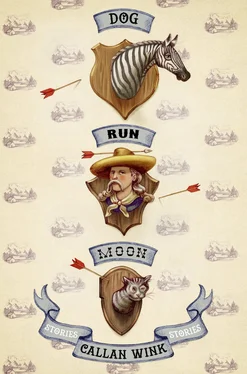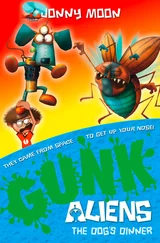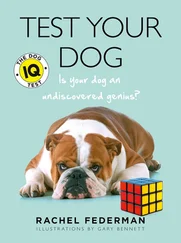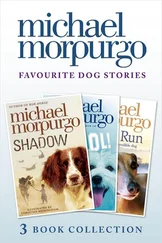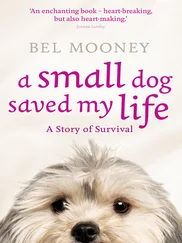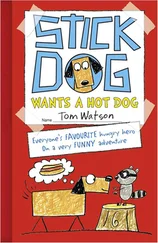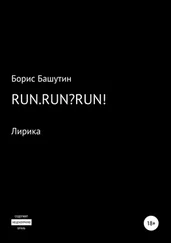August looked at her face, her round, constantly red cheeks. She called it rosacea, a skin condition. It made her seem to exist in a state of perpetual embarrassment. He wondered if she’d been teased about it at school.
She was only seven years older than him and had graduated from the high school last year. In her senior year August’s father had hired her to help him with the milking, and she’d worked before school and after school and on weekends. August’s father said that she worked harder than any hired man he’d ever had. Now that she was done with school she put in full days. She could drive a tractor with a harrow. She could muck out the barn. She could give the antibiotic shots to the cows — and when the calving season came she could plunge her hands in up to her wrists to help a difficult calf come bawling into the world.
“Crunchy shells or soft shells?” August said, knocking at the toes of his boots with the wrench.
“Soft?”
“I like crunchy.”
“Well, I’ll see what you guys have in the cupboards, but I bought some soft ones already.”
“Flour or corn?”
“Flour, I think.”
“I like corn.” August spat at his feet, but his mouth was dry so the spit trailed out on his chin and he wiped at it with the back of his sleeve.
“I asked your dad what kind he wanted and he said it didn’t matter.”
“He likes the crunchy shells too. Trust me. Do you make them with beans or without?”
Lisa hesitated for a moment and tugged at the brim of her cap. “Which do you prefer?” she said.
“Well, that depends.”
“I bought some black beans. I usually put some of those in. But I don’t have to.”
“I like beans. But, I don’t eat black beans. I think they look like rabbit turds. My dad thinks that too.”
“Okay, I’ll leave those out, then. Sound good?” The red on Lisa’s cheeks had spread. A crimson blush was leaching down her neck all the way to the collar of her barn overalls. “All right, August, see you at dinner. Your dad’s probably wondering where I got off to. We have to get these cows taken care of.”
Lisa headed into the barn, and August wandered out to the back pasture, swinging his wrench at stalks of burdock and thistle, stepping around the thick plots of fresh manure.
—
He climbed the low hill before the tree line on the property boundary and sat next to the pile of rocks that marked Skyler’s grave. There was a slightly bent sassafras stick with the bark whittled off jutting up from the rocks. It had once been the vertical member of a cross August had fashioned from two such sticks lashed together with a piece of old shoelace. It was a gesture August had seen performed in all the old westerns he watched with his father. Any time a gunslinger went down his buddies erected a cross just like that. Over the course of the past year the sun had rotted August’s old shoelace so that the horizontal crosspiece had fallen off, leaving just the vertical stick pointing up at the sky like a crooked, accusatory finger.
Skyler had been his birth dog. His father had brought the tiny six-week-old pup home when August had been out of the hospital less than a week. It was something August’s father had said that his own father had done for him. He thought it good for a boy to have a dog to grow up with. And, against August’s mother’s objections, he put the soft, pug-faced shepherd mix in the crib with August—“to get acquainted,” he’d said. “A boy with a dog is healthier, more active, less inclined to allergy and listlessness.” And, it seemed true. August had been a particularly healthy baby, a bright, energetic boy who grew up with a tongue-lolling, shaggy, good-natured four-legged shadow.
At twelve, Skyler had been in remarkably good shape, a little stiff in the mornings, but by noon harassing the barn cats like a dog half his age. And then, one day after school, August didn’t see him anywhere in the barn or yard. He went to the equipment shed and found him, stretched out on his side with a greenish-blue froth discoloring his grayed muzzle. He’d chewed through a gallon jug of antifreeze that August’s father had stored under the workbench.
August and his father had carted the body up to the hill, and they took turns with the pickax and shovel. When they finished, they stood and regarded the cairn of rocks they’d stacked over the raw earth to keep the skunks out.
“I guess twelve is as good an age as any,” his father had said. At the time August thought he’d been talking about the dog. Later, he thought that maybe his father had meant that twelve was as good an age as any for a boy to lose a thing he loved for the first time.
—
August watched the sky in the west become washed in dusky, pink-tinged clouds. Unbidden, the turning sky made him think of Lisa, the crimson in her cheeks that spread like hot infection down her neck and shoulders and back and arms, all the way to her legs. That this was the case wasn’t mere supposition. He’d seen it.
It was an early dismissal day last fall. August off the bus and out of his school clothes, eating a piece of cake from the new house. He wandered down to the barn, the air sharp with the acrid tang of the oak leaves his father had been burning in the front yard. The pile smoldered. There was no one around. Skyler slept in the shade of a stock tank. The cows were yoked up in their stanchions. The whole barn was full of the low rumble of suction, the automatic milkers chugging away.
And then, through the open doorway of the grain room, there was his father. Muck boots on, barn overalls around his legs, thrusting behind Lisa, who was bent over a hay bale, her cheek and forearms pressed down into the cut ends of the hay. Their overalls were around their legs like shed exoskeletons, like they were insects emerging, their conjoined bodies larval, soft and pale. August saw the flush of Lisa then, the creeping red that extended all the way down her back to her thick thighs to her spread calves. She had her underwear pulled down around one knee and their brilliant lacy pinkness was a glaring insult to the honest, flyspecked, gray and manure brown of the barn.
On his way out, August turned the barn radio up as loud as it would go. Golf, Paul Harvey was saying, is a game, where you score a six, yell “fore,” and write down a five.
—
At the dinner table, Lisa and August’s father each had a beer. Lisa cut a lime wedge and jammed it down the neck of her bottle and August’s father said, what the hell, he might try it like that too. They smiled at each other and clinked their bottles together and drank, and August watched the lime wedges bobbing in their bottles like floats in a level held on a surface that was out of true. When they’d finished eating, August’s father leaned back in his chair and belched mightily, wiping taco juice from his hands, his rough, callused fingers shredding the paper napkin.
“Best meal I’ve had in a while. Thanks, Lisa.”
Lisa smiled and said, “You’re welcome, Darwin. I’m glad you liked it.”
“I got three cats today,” August said to break up their stupid smiling competition. “I did it with a wrench. Right in the head. They never knew what happened.” Out of the corner of his eye, he could see Lisa wrinkle her nose slightly.
His father finished his beer and piled his fork and knife and napkin on his plate. He was a large man, all his joints seemed too big, hard knobby wrists and knuckles, his hands darkened from the sun up until the point where his shirt cuffs lay. He was forty-five years old and still had all his hair, dark brown, just starting to gray at the temples. In the cold months, he liked to wear a bright silk cowboy scarf knotted up around his neck. He smiled at women often, and, August noticed, women often smiled back. His mother used to say that for a guy with manure on his boots he could be fairly charming.
Читать дальше
